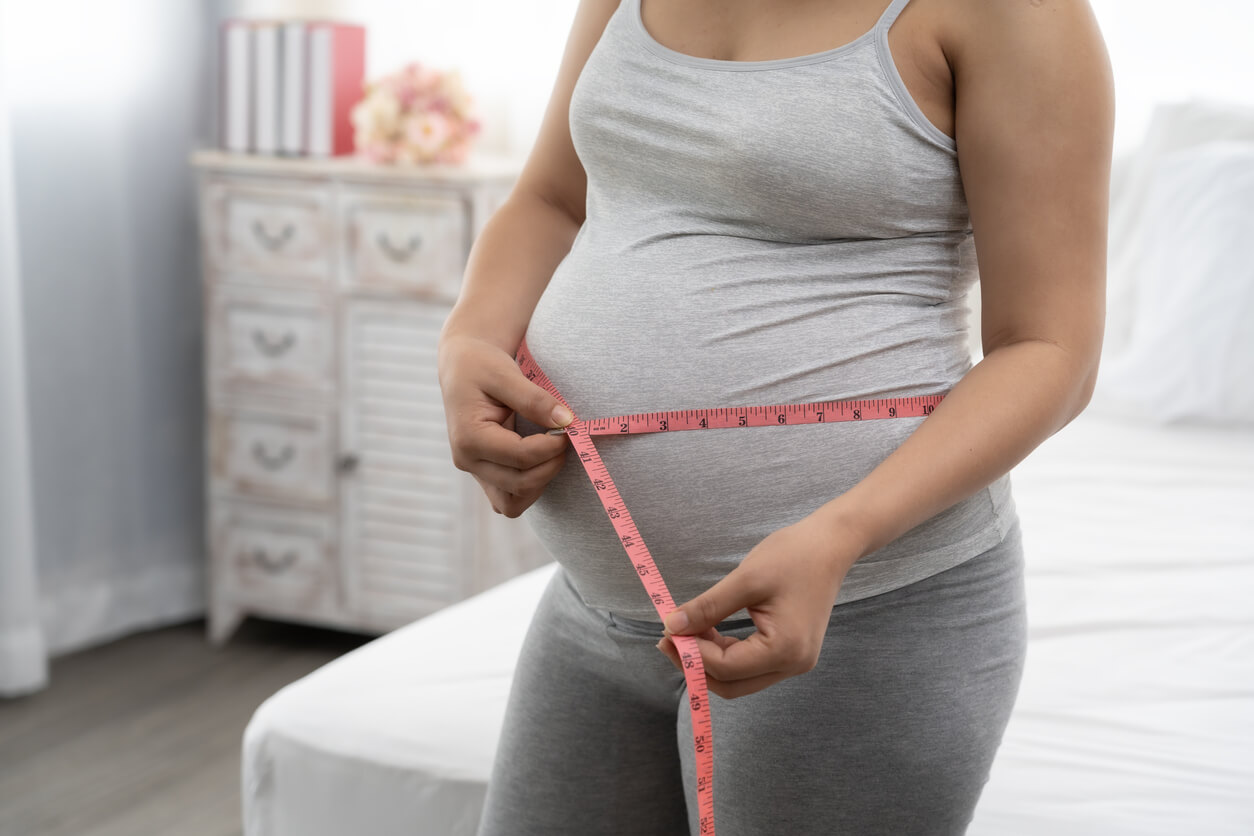For some women, losing weight while pregnant is necessary for a healthy baby. But how do you do this without causing harm to the child? What is the ideal weight loss during pregnancy? This article outlines and explains all the information needed for safe weight loss, as advised by the experts. Of course, you will also want to consult with a healthcare professional for expert diagnosis and guidance. If you are looking for the best in the area, we recommend Maternity Care in Palm Beach, FL.
Keep scrolling to discover the ins and outs of losing weight while pregnant. Plus, you will find the best pregnancy diet plan for maximizing your and the baby’s health. Read on.
Losing Weight While Pregnant: Who May Need It?
Obese women are advised to think about losing weight while pregnant. For reference, a person is considered obese if their body mass index (BMI) is 30 or higher. You can calculate your body mass index using your weight and your height. Weight loss during pregnancy may be essential for women who are obese. If the problem is not dealt with, pregnant obese women may face some of the following risks:
- Gestational diabetes
- Blood clots
- Miscarriage
- Preeclampsia or high blood pressure
- Heavier bleeding than normal post-birth
While these complications may affect anyone pregnant, the risk increases when the patient is obese. Luckily, findings reveal that losing weight during pregnancy is highly possible. On the other hand, weight loss during pregnancy for women who were at a moderate weight before getting pregnant is not advised. In fact, it can be dangerous.
If you believe that you may need to consider weight loss during pregnancy, talk to a healthcare professional. An expert will help you determine your accurate BMI and whether you could benefit from a pregnancy diet plan. We recommend consulting with the best experts in the field, such as Dr. David Adler, OBGYN Specialist.
Create a Plan for Weight Loss During Pregnancy

To ensure a problem-free pregnancy and a healthy baby, taking care of your and the child’s health is vital. Namely, the mother’s body nourishes and carries the baby for around 40 weeks, helping in growth and development. Unfortunately, excess weight can hinder the proper development of the child. Women with excess body weight can have serious complications during pregnancy.
If you are obese, losing weight while pregnant may be essential to avoid the following:
- Stillbirth
- Premature birth
- Heart defects in the child
- Cesarean delivery
- High blood pressure
- Type 2 diabetes and gestational diabetes
- Sleep apnea
- Infections
- Blood clots, typically in the legs
Despite the many dangers, the best way to lose weight is to follow a consistent and gradual plan to lead a healthier life. Implement slow and gradual changes such as adhering to a pregnancy diet plan.
If your healthcare provider recommends losing excess weight, here is how to do it safely and effectively.
1. How Much Weight Do You Need to Gain?
Women who are obese or overweight when pregnant can sometimes only focus on losing excess weight. However, weight gain is inevitable – you will notice some pregnancy body changes, and it is completely normal! However, it is crucial to know how much weight gain is healthy.
Here are the weight gain guidelines for pregnant women from the National Institutes of Health:
- Women who are obese (BMI 30 and up) may gain 11 to 20 pounds
- Women between BMI 25 and 29.9 may gain up to 25 pounds
- Women with a BMI range from 18.5 to 24.9 may gain up to 35 pounds
- Women who are underweight or below a BMI of 18.5 may gain up to 40 pounds
Again, discuss your health and other pregnancy-related doubts with your doctor. Remember, pregnancy body changes are normal, and they happen to everyone. While gaining weight is normal, it can become harmful at a certain stage.
2. Calculate Your Calories and Cut Them If Necessary
The best way to lose excess weight is to manage daily calorie intake. Firstly, find out how much you are currently eating and burning per day. Keep in mind that in order to lose one pound, you require a 3,500-calorie deficit. Over the entire week, this equals around 500 calories less per day. In most cases, women who were at a normal weight based on their height before getting pregnant will require anywhere from 2,200 to 2,900 calories daily while pregnant. However, the exact calories may vary.
Here are some rough guidelines:
- First trimester: no added calories required
- Second trimester: an additional 340 calories daily
- Third trimester: about 450 calories daily
While the best way to lose weight is to consume fewer calories than you burn, this can be dangerous during pregnancy when done incorrectly. Talk to a healthcare professional about your health and how many calories you need to remove or add for a healthier pregnancy.
We recommend keeping a log of your daily caloric intake. After this, discuss your options with a dietitian. A professional will help you create a pregnancy diet plan to ensure that you eat nutrient-dense foods lower in calories. This way, you will reap the benefits of different vitamins, minerals, quality protein, healthy fats, and complex carbohydrates without gaining excess weight.
As a supplement to your pregnancy diet plan, we recommend following some of the tips and tricks:
- Practice portion control and consume smaller portions.
- Cut out junk foods and condiments.
- Use plant-based fats such as olive oil.
- Consume plenty of fresh fruits and vegetables.
- Refrain from sugary soda, and drink water instead.
3. Work Out for 30 Minutes Per Day
Any form of exercise can benefit you during pregnancy. According to some experts, pregnancy yoga is an excellent workout for expecting mothers. Namely, pregnancy yoga is gentle and helps you prepare for giving birth. Alternatively, you can also consider some of the following:
- Jogging
- Gardening
- Walking
- Swimming
While pregnancy yoga and a light walk around your neighborhood are completely fine and beneficial for your baby’s health, some forms of exercise may be harmful. You will want to avoid activities that:
- Cause pain and discomfort.
- Make you feel dizzy.
- Require you to perform in the heat.
- Rely on balance, such as skiing or bike riding.
- Are performed on your back (post 12 weeks of being pregnant).
4. Accept Inevitable Pregnancy Body Changes

For most women, managing body weight is safer than losing a significant amount of it. While there are many benefits of reducing BMI during pregnancy, weight loss may not be appropriate for all pregnant women. The problem with weight loss when pregnant is that it involves exercise and cutting calories. When done incorrectly, some women can go to extremes and possibly harm the unborn baby. Healthcare professionals usually do not recommend losing weight while pregnant – unless the woman is obese. Discuss any concerns or questions you may have with a professional.
Be Kind to Yourself
Everyone is bound to gain weight during pregnancy. You are growing a child inside you and, therefore, need to consume nutrient-dense foods and rest. Aside from ensuring that you are doing your best to stay healthy while pregnant, remember to be kind to yourself. The way you speak to yourself matters. Always speak kind words – it’s good for your mental health and your baby!
Book an Appointment Today
Give us a call today and schedule an appointment with the best professionals in your area. Take care of your and your baby’s health and consult with trained, reliable, and friendly experts.


